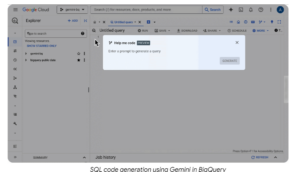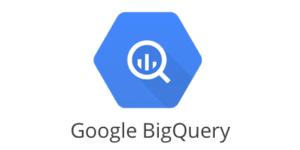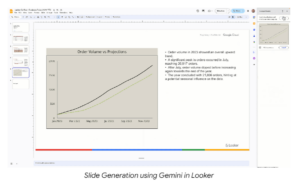
Google Cloud has been caught in third place among the many cloud bigs for years, nevertheless it’s banking on a slew of database and AI enhancements unveiled at its Subsequent Tokyo ‘24 convention at present to assist differentiate its choices amongst opponents, together with main updates to its Spanner databases and new generative AI capabilities in BigQuery and Looker.
BigQuery and Looker, that are Google Cloud’s analytics database and BI front-end, respectively, are getting extra hooks into Vertex AI and the varied basis fashions that it ships with below the Gemini model.
Particularly, BigQueryis getting new GenAI assistant features, reminiscent of SQL and Python code technology and understanding, which ought to speed up the event of code for information science, information evaluation, and information engineering.
The brand new GenAI capabilities will present a lift in productiveness for information preparation duties, mentioned Gerrit Kazmaier, Google’s vp and normal supervisor for database, information analytics, and Looker.
“Knowledge is messy,” he mentioned throughout a press convention final week. “Our new information preparation assistant mainly is an clever information agent that’s specialised on information preparation, and it’s mainly serving to everybody who has messy information, to wrangle it right into a constant type, the understanding, the semantics of fields, by proposing really helpful transformations.”

Google Cloud labored with its Deep Thoughts subsidiary to develop BigQuery’s new “code-assist” for SQL and Python
The BigQuery workforce labored “insanely onerous” with Google Deep Thoughts to develop the SQL and Python code technology capabilities, Kazmaier mentioned. Whereas SQL can get “very lengthy, very advanced,” the GenAI code assistant is ready to comply with it, cause about it, and even clarify it again to you, he mentioned, which helps with the technology of optimized code.
Google can also be introducing to BigQuery a brand new consumer expertise referred to as an information canvas that has caught the attention of Kazmaier. “Knowledge canvas is actually a marvel,” Kazmaier mentioned. “It’s mainly the right synergy between consumer experiences, [for] AI and information evaluation.”
Knowledge canvas strikes customers past the normal paradigm of an IDE or an information science pocket book, he mentioned, by serving to customers construct an interactive information graph with BigQuery, he mentioned. The info graph, in flip, prompts the info agent about what the consumer is constructing, which results in a virtuous cycle between consumer and AI.
This method “leads us to unimaginable excessive accuracy numbers as a result of primarily it’s a self-reinforcing dynamic by you incrementally constructing your evaluation path,” Kazmaier mentioned, “and the evaluation path, due to the semantic relationship that it describes, it is also informing AI about your intentions. And also you get a lot larger accuracy in predictions.”
“We have now superb buyer suggestions about information canvas,” he added. “We actually anticipate groundbreaking productiveness positive factors from that new expertise and we’re so proud to place it into GA.”
Looker can also be getting the Gemini remedy within the type of AI-powered components help capabilities (at present in preview) that assist customers “discover information and create metrics from advanced formulation.” Google can also be bringing new slide technology capabilities that can assist analysts deliver their queries to life with compelling graphics generated by AI.
BigQuery has historically been used for analyzing structured information. With this launch, Google is opening it as much as analyze all sorts of information, together with structured, semi-structured, and unstructured information. Mixed with extra GenAI enhancements within the Looker enterprise intelligence (BI) software, it can radically open up the potential area of questions that prospects can ask–and truly get answered, Kazmaeir mentioned.
“BI has been actually constrained in so some ways. Often organizations run out of time. They by no means run out of questions,” he mentioned. “So we now have centered our innovation on Looker and In BI in constructing personalized LLM brokers who’re actually the BI consultants, which know the way to choose information, carry out evaluation, and summarize it. So mainly everybody who has a query can get it with out working with an analyst…..As an alternative of somebody even having to ask the query, the system is mainly mining {that a} priori and telling you what’s related to concentrate to.”
Google Cloud additionally introduced that it’s now supporting open supply Apache Spark and Apache Kafka for information streaming and processing inside BigQuery. It additionally introduced a brand new real-time streaming choice from its Analytics Hub that allows customers to subscribe and get entry to real-time information feeds. Lastly, it launched a brand new information migration providing designed to assist customesr transfer into BigQuery.
Operational Databases
As if the enhancements in BigQuery and Looker weren’t sufficient, Google Cloud can also be making huge bulletins for its transactional databases, together with Spanner, the worldwide SQL database chosen by prospects with tight availability necessities.
For starters, Spanner goes multi-model, with graph, vector, and full-text search capabilities. These will assist Spanner energy the following technology of GenAI apps, says Andi Gutmans, Google’s vp and normal supervisor of databases.
“Graph is a very crucial functionality to grasp how issues relate to one another…[and] actually understanding how can we ship contextual functionality out of our information,” Gutmans mentioned throughout the press convention. “And with Spanner Graph, we’re mainly profiting from that very sturdy consistency, very sturdy availability, and just about limitless scale of spanner, but additionally supporting the graph mannequin on high of that.”
Graph is a first-class information mannequin inside Spanner, based on Gutmans, however that doesn’t imply that prospects must retailer all of their information as a graph. “They will take their enterprise information and simply begin to construct the graph functionality on high of that or on the aspect, and question these items collectively, so that can actually assist buyer extract the utmost out of their information,” he mentioned.
Spanner can also be supporting Graph Question Language (GQL), which is an ISO customary for querying graphs. It’s additionally supporting full-text search, which ought to assist decrease information motion into serps like Elasticsearch or Solr, Gutmans mentioned. Lastly, Spanner is gaining help for storing vector embeddings, which is able to assist with semantic search and likewise assist serve information as a part of a retrieval augmented technology (RAG) setup.
“What’s most fun right here is that we’re bringing collectively the relational mannequin, the graph mannequin, the full-text search mannequin and the vector search mannequin, and all these fashions are totally interoperable, that means I can really construct purposes which have all these capabilities with them, and that’s actually going to assist our prospects construct very clever purposes in a means that they’ve by no means been in a position to do earlier than, in a single system, with the very best degree of availbltiy, constantly and scale,” Gutmans mentioned.
Finaly, Google Cloud can also be rejiggering its Spanner packaging. It’s now providing the database in three variations, Commonplace, Enterprise, and Enterprise Plus, as an alternative of the earlier two. In response to Gutmans, this can present extra flexibility and value transparency to Spanner prospects, since replication prices are constructed into Spanner Enterprise.
For more information, see the Google Cloud weblog.
Associated Objects:
Google Cloud Bolsters AI Choices At Subsequent ’24
Extra AI Added to Google Cloud’s Databases
Google Cloud Bolsters Storage with New Choices for Block, Object, and Backup
AI, bigquery, co-pilot, code help, information canvas, Gemini, GenAI, giant language mannequin, LLM, looker, Vertex AI
